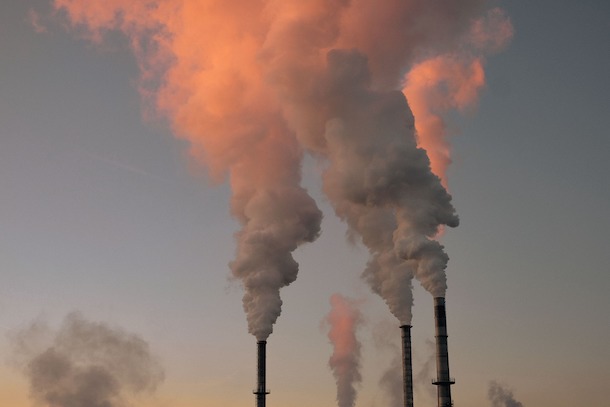
12 • 26 • 2024
We Helped Pass the NY Superfund Act
Victory! We Made Polluters Pay in New York.
As the impacts from climate change worsen, cities and states are spending huge amounts of taxpayer dollars on fixing and shoring up infrastructure to keep communities and economies functioning. New York estimates that it needs $10 billion per year to upgrade sewers and storm drains, safeguard transportation and the electric grid, and prevent future flooding, for example.
So why are taxpayers footing these bills, which are the result of decades of carbon pollution? Good question. To rectify this unfairness, New York passed the Climate Change Superfund Act (S2129A and A3351). This bill makes the fossil fuel industry pay for climate damage, much as the successful “superfund” laws did in the 1980s to force companies to pay for toxic pollution across the country.
The Act works by charging a proportional fee to any oil, coal, or gas company that has emitted over one billion tons of carbon pollution from 2000 to 2018 in the US. These fees will raise $3 billion a year towards the estimated $10 billion needed annually to address the climate crisis in NY. Luckily, these companies have more than enough money to go around, raking in record profits in the past few years. In 2022 the world’s biggest oil companies raked in a record $215 billion in profits.
The funds can then be spent by the State on job-creating infrastructure projects "designed to avoid, moderate, repair, or adapt to negative impacts caused by climate change, and to assist communities, households, and businesses in preparing for future climate change-driven disruptions."
A key feature of the Climate Superfund is that the one-time carbon pollution fees are compensation for damages resulting from past behavior. Therefore, unlike a carbon tax or gas tax, the economic impact will fall on big oil and gas corporations and their shareholders, not consumers. Any company paying into the Superfund could not raise its gas or oil prices in the future (to offset the assessment fee) because it would lose market share to companies paying a smaller assessment amount or no amount. In this way, the Act would not affect the cost of new gas or oil production and would not affect gasoline prices at the pump.
Fossil fuel companies are making skyrocketing profits with no accountability for the climate crisis they created. It’s bad enough that New Yorkers are suffering from air pollution, extreme heat, intense storms, and rising sea levels; they are also on the hook for billions of dollars to deal with the costs of a worsening climate.
NY Governor Hochul signed this bill into law on Thursday, December 26, 2024. The four NY Surfrider Chapters worked with a large coalition of groups supporting this bill, led by NY PIRG.
